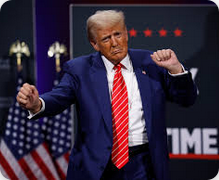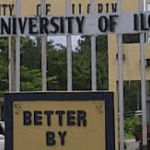The announcement by President Donald Trump to cut funding for international HIV/AIDS initiatives, including those targeting Nigeria and other low and middle-income countries, sent ripples across the world. A week later, on January 28, 2025, the administration granted a waiver for essential medicines and medical services, allowing the global HIV treatment programme to continue.
The waiver will ensure that Antiretrovirals, ARVs, and medical services supported through the President’s Emergency Plan for AIDS Relief, PEPFAR, can continue to be distributed in Nigeria.
Currently PEPFAR is the largest donor for HIV treatment in Nigeria, having committed an estimated $7.8 billion in funding covering around 90 per cent of the treatment needs and working closely with the Nigerian government to enhance prevention, treatment, and support for those affected by HIV/AIDS.CLICK BELOW LINK TO READ THE FULL NEWS▶▶
The waiver notwithstanding, the message is clear: The days of dependence on donor funding are numbered. Over the last two decades, various partners, including the U.S. government, have played a crucial role in Nigeria’s HIV/AIDS response, especially in maintaining treatment for individuals living with HIV. It is time for Nigeria to take ownership of its own national response.
Nigeria leads West and Central Africa in the number of people living with HIV, which continues to pose a significant threat. Currently, the country accounts for about 10 per cent of the global HIV burden.
In 2023, there were 75,000 new infections and 45,000 HIV-related deaths. The number of children born with HIV is still high because the efforts to tackle Mother-To-Child Transmission challenges is just about 35 per cent as against the 75 per cent target. Nearly 1.7 million children have been orphaned by HIV, highlighting the broader societal impacts of the epidemic. Vulnerable populations, including women and children, are particularly affected, further complicating the problem.
Nigeria has a national HIV/AIDS response led by the National Agency for the Control of AIDS, NACA, that is focused on increasing access to testing, treatment, and education as part of this response. Nigeria has seen successes in scaling up antiretroviral therapy, ART, coverage, reaching around 1.9 million Nigerians but challenges persist. Limited access to healthcare facilities, stigma surrounding the disease, and inadequate awareness campaigns remain stumbling blocks. These challenges must be subdued to ensure that ongoing efforts to combat HIV/AIDS continue effectively.
The federal government and other stakeholders must take concrete actions to oppose funding cuts. Advocacy campaigns urging lawmakers to protect HIV funding are essential. Grassroots movements can mobilise support and raise awareness about the consequences of such decisions. Exploring viable alternative funding mechanisms is also crucial to mitigating the impact of potential cuts. Increased domestic funding, public-private partnerships and philanthropic initiatives can all help to sustain vital programmes.
To prevent the Trump administration’s threat to suspend HIV funding from continuing to pose significant risk to public health, Nigeria must act swiftly to safeguard the progress made in HIV prevention and treatment by addressing the issue and ensuring that those affected by HIV in Nigeria continue to receive the care they need and deserve.



